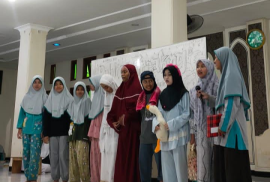Good morning students! I hope you are always healthy because there is good news! After much deliberation to enliven the 78th ANNIVERSARY OF FACULTY OF CULTURAL SCIENCES, GADJAH MADA UNIVERSITY, finally we now accept students who also want to show their talents in the FIB’s Got Talent competition. Anyone who is part of the Faculty of Cultural Sciences can now feel the excitement of this competition! Registration is also extended from February 1st to 21st 2024! For those who wish to register, please pay attention to the following things:
CRITERIA:
- Participants are children/grandchildren of lecturers or teaching staff’s families, and all students at the Faculty of Cultural Sciences, Gadjah Mada university, at 3rd grade of elementary school students.
- Participants send a video containing the talent display of each participant.
- The talent in mention can be in the form of:
- Dancing (Modern: Breakdance, Hip Hop, Ballet, Shuffle Dance, LED Dance and Traditional)
- Singing (All music and genres), Others such as:
- Music Performance (musical instruments provided independently by participants)
- Stand Up Comedy, Magic
- Sports that can be shown include: Wushu, Acrobatics, Cheerleading, Gymnastics etc
VIDEO TERMS & CONDITIONS:
- The video must be a minimum of 3 minutes and a maximum of 7 minutes
- Maximum file size is 100 MB and the video format used is MP4
- The video is in landscape or horizontal orientation with one shot and no cut.
- The video must be clear supported by good lighting.
- Editing of colors and effects is allowed as long as the details of the movement are still clearly visible.
- The videos submitted have never been used to take part in any competition.
- The videos and costumes worn do not contain SARA and pornography.
- Videos that have been uploaded fully become the property of the committee.
- Announcement of winners is at the Opening.
ASSESSMENT CRITERIA:
- Entertaining, interesting and have the ability to show their talents (30%)
- Videography creativity, backdrop arrangement, improvisation (20%)
- Costumes and make-up: Clothes and make-up used (15%)
- Overall harmonization of appearance (35%)
Collect videos before February 21st 2024 via: http://ugm.id/FIBGotTalent and upload them to the Personal Social Media (Reels-IG/Tiktok) by tagging @fib.ugm
Come on… we’re waiting for your participation… Let’s Join Us and Stay Tuned!


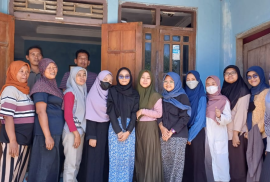
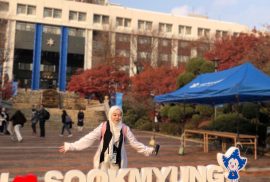
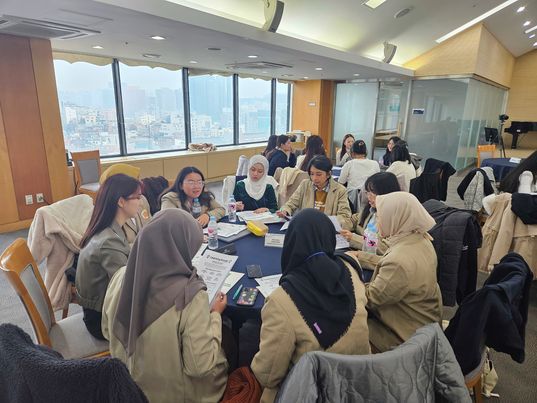
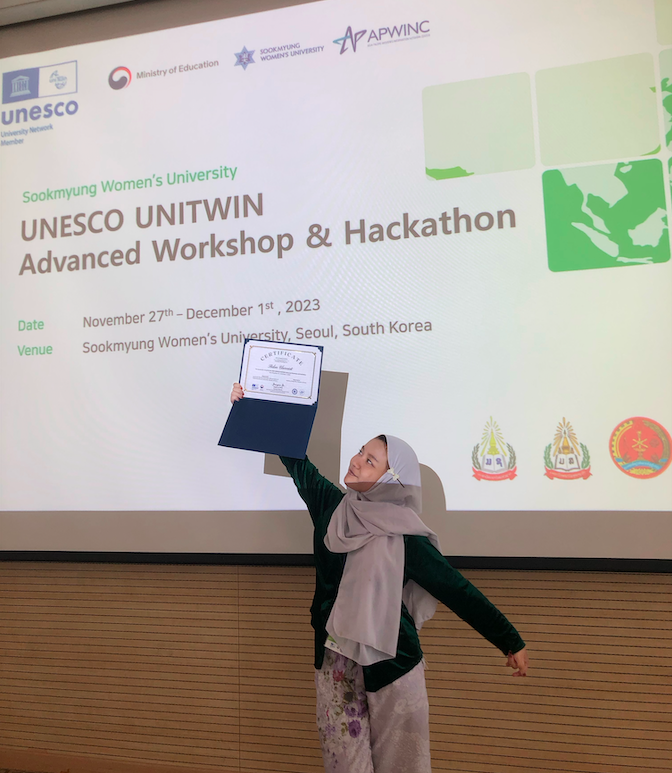
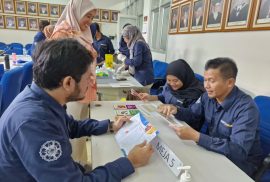
 The second day’s event was held the following day, it was Wednesday, 7th of February 2024 in Courtroom 1 of Poerbatjaraka Building, 1st Floor, Faculty of Cultural Sciences, Gadjah Mada University at 8 am until 12.15 pm. Because on the first day the participants were presented with basic material regarding Posbindu and so on, on the second day the participants were encouraged to practice. The Posbindu training participants carried out the Posbindu table 5 simulations and exercises with enthusiasm and passion, then immediately carried out the second post test to see the progress they had made as Posbindu cadres after receiving the material and training during the two-day event.
The second day’s event was held the following day, it was Wednesday, 7th of February 2024 in Courtroom 1 of Poerbatjaraka Building, 1st Floor, Faculty of Cultural Sciences, Gadjah Mada University at 8 am until 12.15 pm. Because on the first day the participants were presented with basic material regarding Posbindu and so on, on the second day the participants were encouraged to practice. The Posbindu training participants carried out the Posbindu table 5 simulations and exercises with enthusiasm and passion, then immediately carried out the second post test to see the progress they had made as Posbindu cadres after receiving the material and training during the two-day event.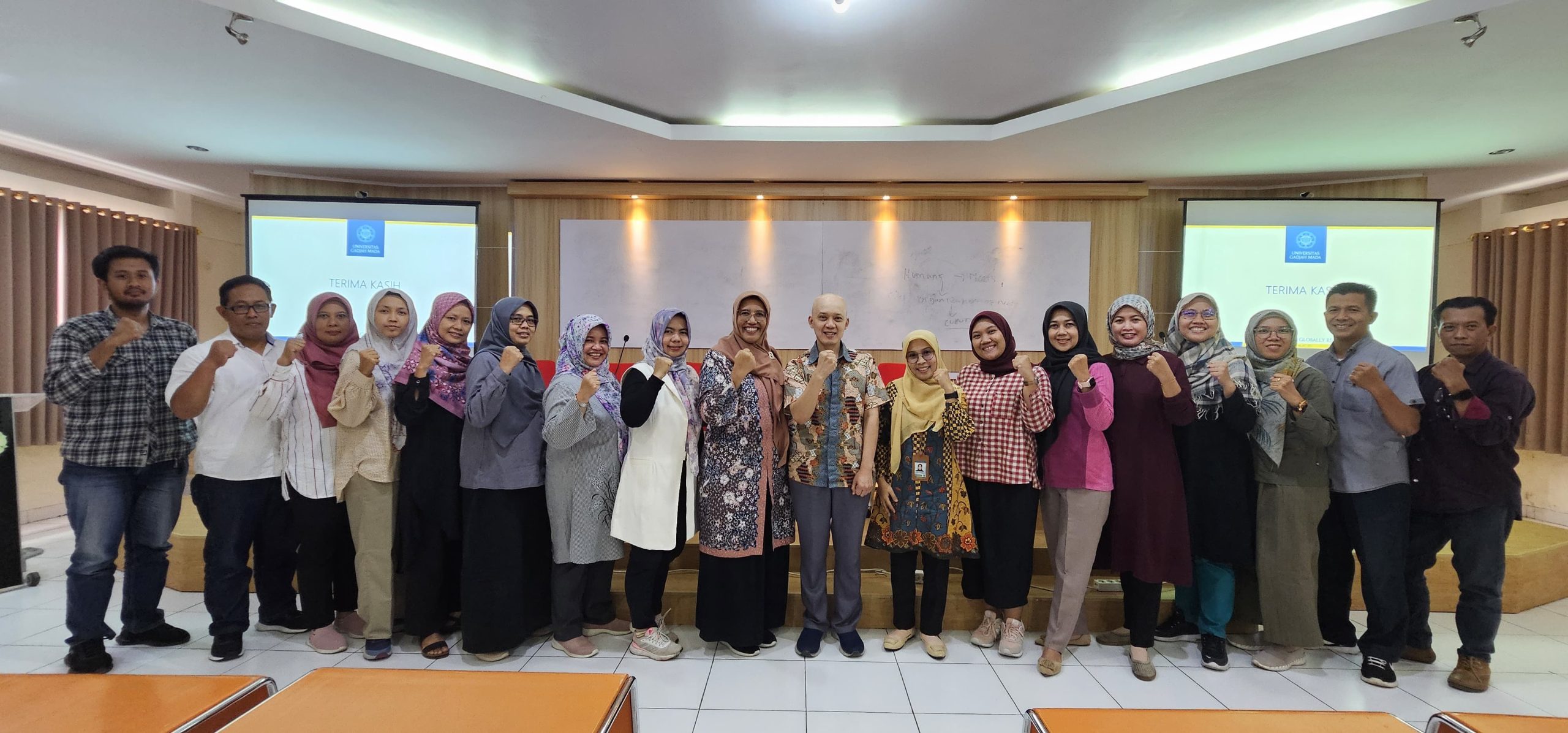 This event received cooperation and assistance from Mr./Mrs. UGM HPU Team. Head of HPU UGM, Prof. Dra. Yayi Suryo Prabandari, M.Sc., PhD, had the opportunity to directly accompany the training participants as a speaker regarding examination activities in posbindu and health check practices (measuring blood pressure and taking blood samples to check cholesterol, sugar and uric acid levels). He received a direct invitation from the Deputy Dean for Finance, Assets and Human Resources, namely Mr. Suray Agung Nugroho, M.A., Ph.D. The Posbindu cadre training was attended by staff from the Faculty of Cultural Sciences, Gadjah Mada University. The targets of Posbindu services are all staff, both lecturers and teaching staff in the faculty environment.
This event received cooperation and assistance from Mr./Mrs. UGM HPU Team. Head of HPU UGM, Prof. Dra. Yayi Suryo Prabandari, M.Sc., PhD, had the opportunity to directly accompany the training participants as a speaker regarding examination activities in posbindu and health check practices (measuring blood pressure and taking blood samples to check cholesterol, sugar and uric acid levels). He received a direct invitation from the Deputy Dean for Finance, Assets and Human Resources, namely Mr. Suray Agung Nugroho, M.A., Ph.D. The Posbindu cadre training was attended by staff from the Faculty of Cultural Sciences, Gadjah Mada University. The targets of Posbindu services are all staff, both lecturers and teaching staff in the faculty environment.